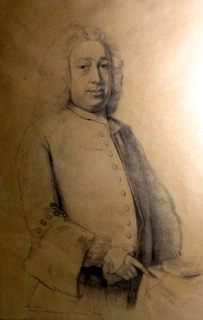See also
Name list
This page or section lists people that share the same given name. If an internal link led you here, you may wish to change that link to point directly to the intended article.
Sampson is the given name of:
People:
Biblical figures:
Fictional Characters
William Collins may refer to:

Hugh Culling Eardley Childers was a British Liberal statesman of the nineteenth century. He is perhaps best known for his reform efforts at the Admiralty and the War Office. Later in his career, as Chancellor of the Exchequer, his attempt to correct a budget shortfall led to the fall of the Liberal government led by William Gladstone.
The year 1828 in science and technology involved some significant events, listed below.
The year 1880 in science and technology included many events, some of which are listed here.

Dr Joseph Sampson Gamgee, MRCS, FRSE was a surgeon at the Queen's Hospital in Birmingham, England. He pioneered aseptic surgery, and, in 1880 invented Gamgee Tissue, an absorbent cotton wool and gauze surgical dressing.

Baron Lionel Nathan de Rothschild was a British Jewish banker, politician and philanthropist who was a member of the prominent Rothschild banking family of England. He became the first practising Jew to sit as a Member of Parliament in the House of Commons of the United Kingdom.
Barnard is an English and Scottish surname which derived from the surname Bernard, and was brought after the Norman Conquest. Occasionally It is an Anglicized form of the Irish Ó bearnáin. The name ultimately derived from the Teutonic given name Bernhard from the element bern "bear" combined with hard "brave, hardy".
Moses Mendes da Costa, also called Anthony da Costa, was an 18th-century English banker.
Gamgee is the surname of:

Prof Arthur Gamgee FRS FRSE was a British biochemist.
Langton is a surname. Notable persons with that surname include:

Sampson Gideon was a Sephardic Jewish banker who was active in 18th-century London. Gideon is most prominently known for his financing of the Hanoverian-Whig government's suppression of the Jacobite Rising of 1745, subsequently becoming a trusted "adviser of the Government" who supported the passage of the Jew Bill of 1753. Historian James Picciotto, in his book Sketches of Anglo-Jewish History (1875) described Gideon as the "Rothschild of his day" and the "pillar of state credit".
Sir Culling Eardley Eardley, 3rd Baronet was a British Christian campaigner for religious freedom and for the Protestant cause, one of the founders of the Evangelical Alliance.

Sampson Eardley, 1st Baron Eardley FRS, known as Sir Sampson Gideon from 1759 until 1789, was the son of another Sampson Gideon (1699–1762), a Jewish banker in the City of London who advised the British government in the 1740s and 1750s, and his wife Jane, daughter of Charles Ermell of London.
Wilmot is a surname, and may refer to:

Sir John Eardley Wilmot PC SL, was an English judge, Chief Justice of the Common Pleas from 1766 to 1771.
John Eardley Wilmot was a British lawyer and politician who sat in the House of Commons from 1776 to 1796.
William Blair was an English surgeon with an interest in ciphers and stenography. He was known also for contributing articles to Rees's Cyclopædia.
Matthew Clarmont was an English banker who served as Governor of the Bank of England from 1766–69. He had been Deputy Governor from 1764–66. He replaced John Weyland as Governor and was succeeded by William Cooper. Clarmont's tenure as Governor occurred during the end of the Bengal bubble (1757–1769).

Maria, Lady Eardley is an oil on canvas painting by the English artist Thomas Gainsborough from c. 1770. It has been in the collections of Nationalmuseum in Stockholm since 1966.